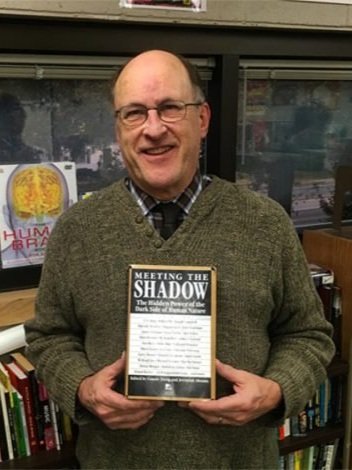Welcome To the Machine
By Bill Bornschein | February 28, 2011
A student of Ernest Becker could not help but be intrigued by the recent Time cover story, “2045-The Year Man Becomes Immortal.” It turns out that the Time article was a celebratory treatment of the concept of Singularity, defined as “the moment when technological change becomes so rapid and profound, it represents a rupture in the fabric of human history.” Right next to it on the bookstore shelf was the issue of The Atlantic Monthly whose cover story was entitled “Why Machines Will Never Beat The Human Mind.” My inner Stephen Stills whispered, “There’s something happening here. What it is ain’t exactly clear.” All of this was against the backdrop of the decisive Jeopardy victory over two human champions by a computer named Watson. I decided to investigate.
While a rupture may sound negative to most, to the community of Singulatarians it represents a new universe of possibility. By tracking the rate of technological advancement, they project that by the mid 2020’s intelligent machines will be creating even more intelligent machines and artificial intelligence will surpass human intelligence. Interestingly, the proponents admit that it is impossible to predict what all this will mean and that the future is unknown. While the article contains dystopian visions, the Singulatarians on balance tend to have more utopian visions and in any case, they claim the die is cast and that Singularity will occur regardless. Part of the utopian vision is contained in the following scenario: “The human genome becomes just so much code to be bug-tested and optimized and, if necessary, rewritten. Indefinite life extension becomes a reality; people die only if they wish to. Death loses its sting once and for all.” The Die is not only cast, it is cast aside.
By contrast, the Atlantic article “Mind vs. Machine” fairly bubbles with anxiety over the prospect that artificial intelligence will surpass human intelligence. A good deal of the article focuses on the yearly attempt by programmers to pass the Turing test, wherein a human would be unable to tell if he or she was communicating with another human or with a machine. The author, Brian Christian, participated in the most recent Turing Test because, after a computer almost won in 2008, “…a steely voice rose up inside me: Not on my watch.” He concludes his piece by saying that the most significant Turing test will be the one that occurs after a machine finally fools the human. “The one where we humans, knocked to the canvas, must pull ourselves up. The one where we learn how to be better friends, artists, teachers, parents, lovers; the one where we come back. More human than ever.”
What are we to make of all this? It seems clear that a new form of anxiety is on the rise, an anxiety grounded in an uncertain techno-mediated existence. Having been pushed off our mythological center stage in the universe, it seems the machines are indicating there’s not even space for us in the green room! There may be an interesting paradox unfolding here. The Atlantic article features “The Sentence” which reads as follows: The human is the only creature that _____________________ .
Machines have progressively debunked various answers to “The Sentence” as their capabilities have expanded. What if the answer to “The Sentence” is “The human is the only creature that experiences anxiety?” What if the curse of the human dilemma, which Becker so brilliantly explains, is actually a blessing? What if our mortal anxiety is that which separates us from our immortal creations? I’m still not sure what to make of all this. I’ll Google the answer and get back to you.

